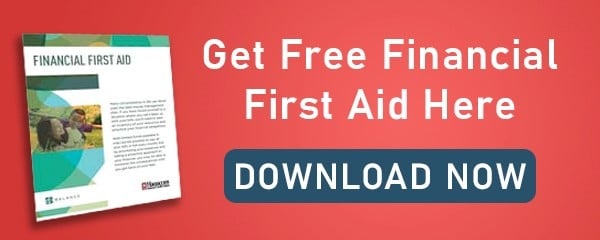News alert: Scammers aren’t sheltering in place during the COVID-19 pandemic.
As most of us hunker down to reduce the virus spread, scammers are out there trying to steal your money, sometimes with tragic and potentially fatal consequences.
Here are three coronavirus-related scams to watch out for:
1. Fake tests.
In a time when testing is crucial, some coronavirus testing sites are, unfortunately, fake.
These phony sites can look very real, with tents, signs, hazmat suits, and tests that can appear legitimate.
But they are fronts for scammers to collect your personal information, including Social Security numbers, credit card details, and health specifics. This fraudulently obtained information can then be used to pilfer your financial accounts and even steal your identity.
Perhaps even more tragically, they can put your health further at risk since they don’t always follow legitimate sanitation and safety protocols. It can cause the virus to spread, with potentially tragic results.
To avoid this scam:
- Call your doctor if you think you need testing; he or she may suggest you recover at home if your symptoms are mild and avoid test sites altogether.
- If you do need testing, get a referral from your local or state health department. And if you have any questions about the legitimacy of the test site, reach out to law enforcement.
- Report fake test sites to ftc.gov/complaint.
2. Theft of economic impact, or “stimulus,’’ money.
As part of an economic recovery package, Congress approved a direct payment of $1,200 to most Americans, although the amount can vary due to income and family size. Scammers are trying to steal this money, the IRS reports.
Scammers may:
- Ask recipients to sign over their payment checks.
- Use social media, phone, email, or texts to request verification of personal and/or financial information.
- Suggest recipients work with them to receive their checks faster.
- Mail a fake check, often with an odd amount, and ask the recipient to call to verify financial or personal details before cashing.
The IRS reminds the public that in most cases, economic impact money is direct deposited or an official check is sent by mail. The IRS does not call recipients or send emails. Be especially wary of attachments in these phony emails and don't open them; they could be viruses.
Visit irs.gov for more information.
3. Making false claims to access ATM information. Scammers are reaching out to people by phone or SMS messaging to claim their bank cards are blocked, according to recent reports received by the Credit Union National Organization (CUNA).
The scammers then request personal information as a way to “authenticate’’ the caller. This personal information can lead to fraudulent activity, often at ATMs.
These scams have been on the increase in recent weeks. Here are ways you can stay safe:
- Don’t let people pressure or frighten you on the phone. Scammers are master manipulators.
- Don’t answer calls from unknown numbers; legitimate callers will leave a message.
- Never share one-time passwords. These are gateways to the personal information scammers love.
- Review your statements regularly and carefully; contact your bank if you see any unauthorized activity.
- When in doubt, hang up. If you have any questions or concerns, end communications and contact your financial institution directly.
Knowledge is power and healthy skepticism may be your most powerful tool these days to stay healthy physically, mentally, and financially.
Download our free Financial First Aid Guide! It'll walk you through the best ways to manage your money during uncertain times. We’ll show you how to take inventory and review all your expenses, assess your debts, prioritize bills and communicate with creditors, and so much more!
Others are reading:

.jpg)


-2.png)
-1.png)








Comment